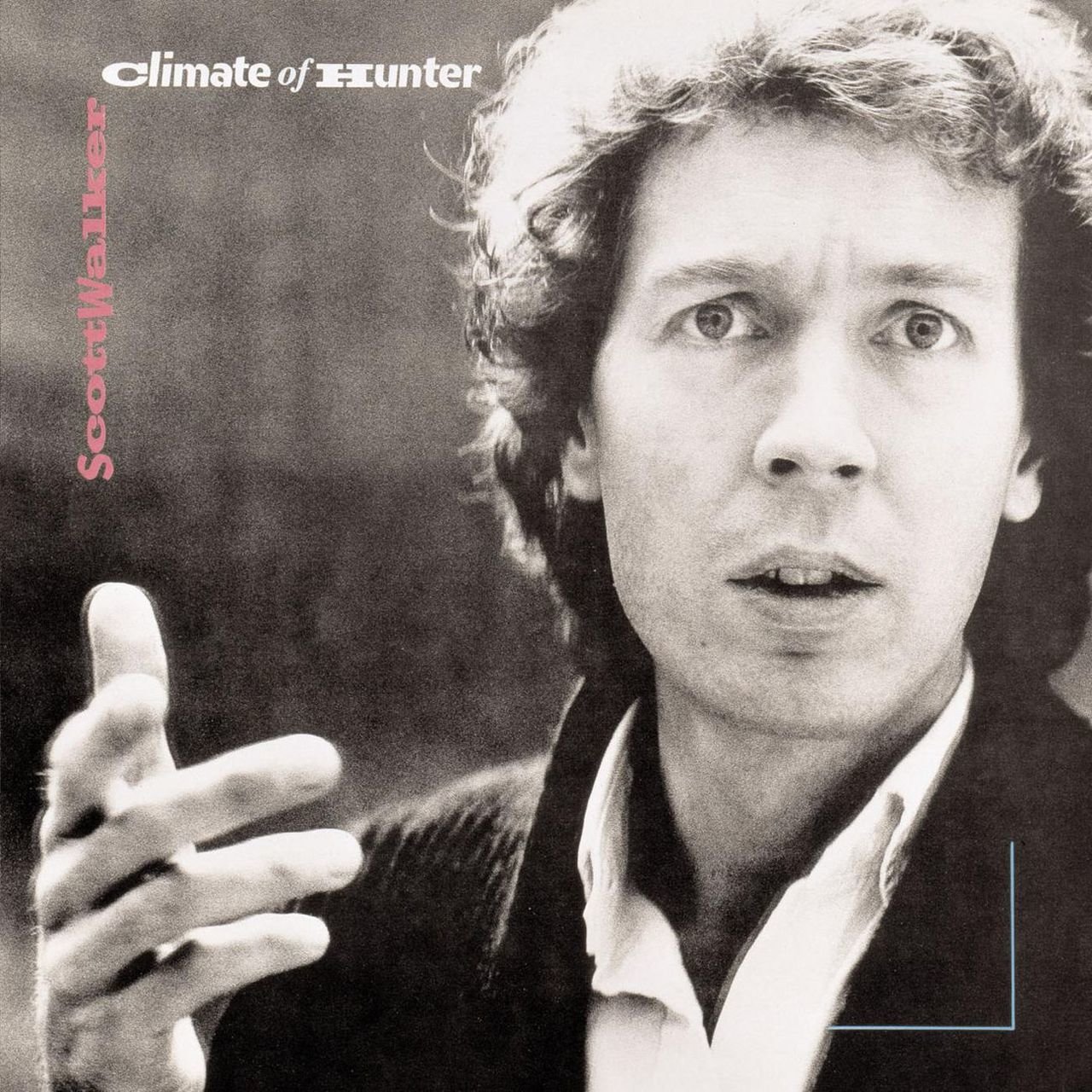“This is how you disappear…” Walker’s intentions for Climate of Hunter are made clear from the off. Whilst it may be his most divisive record, with opinion divided between those who see it as the last hurrah for the pop star Scott, and those for whom it belongs on the avant-garde shelf next to Tilt and The Drift, it can’t be denied that, for the man himself, Climate… is a defiant artistic statement, the sound of a man reclaiming his vision after years of (in my opinion, underrated) covers albums. You fuckers didn’t like Scott 4, and you didn’t like the covers, so get a load of THIS.
The truth is that Climate… is Walker’s absolute middle ground, one foot in ornate, baroque pop, the other in the uneasy listening with which he is now inextricably associated. It’s his weirdest album by far. With its fretless bass, processed drums and the unlikely involvement of Mark Knopfler and Billy Ocean (yes, Billy Ocean), it’s superficially very much of its time, yet it manages to avoid mid-80s cliché to sound like the work of an alien spending a couple of days on earth listening to mainstream radio, and then going back to his planet and trying to recreate what he heard from memory. Imagine Roxy’s Avalon if Eno hadn’t quit and Ferry hadn’t become a social climber; imagine what Japan might’ve done next if they hadn’t split after Tin Drum. Like The Blue Nile’s contemporaneous A Walk Across the Rooftops, it takes 1980s AOR and subtly tweaks it off-kilter, creating something recognisable and accessible yet disorientating and disturbing.
So whilst Climate… is musically tethered, albeit loosely, to conventional pop structures and frequently harks back to Walker’s earlier work (the likes of ‘Dealer’ and ‘Sleepwalkers Woman’ in particular would fit seamlessly onto side 1 of Scott 4 – indeed the latter is one of his most beautiful songs), lyrically it is a giant step into avant-garde territory. Gone are the character sketches and Brel pastiches of Scott 1-4, replaced by the dark, impenetrable cut-up style first tentatively ventured on 1978’s then-shocking (excuse the pun) ‘The Electrician’, and which Walker has used almost exclusively since. Song titles bear little relation their content (“Psalms of your hands, sung into the lateness” goes the ‘chorus’ of ‘Dealer’), or, in the case of Tracks 3, 5, 6 and 7, have no titles at all, Walker preferring to leave them totally open to the listener’s interpretation – though quite how we are meant to interpret “A shattered heart pace greases the fade/Sinking the blood back/Breaking to where loaded icons wade”, he didn’t elaborate.
It all ends, bizarrely, with ‘Blanket Roll Blues’, a cover of a Tennessee Williams song delivered straight, with Mark Knopfler’s skeletal blues guitar backing Walker’s voice. Lyrically at least it brings the album full circle, from “This is how you disappear” to “When I crossed the river with a heavy blanket roll/I took nobody with me, not even a soul.”
A disappearing act indeed – Climate of Hunter would be the last the world would hear of Walker until 1995’s Tilt, a record so far removed from popular music it made its predecessor sound like Thriller. Climate… did indeed help Walker disappear – famously it was Virgin’s worst seller of all time – but 32 years on, time has been kind to it, despite its none-more-80s sound, and it’s a fantastic and fascinating document of that very rare moment when an artist simultaneously waves farewell to his past and steps into the future.




